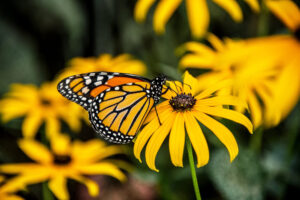
Pollinators such as bees, butterflies, hummingbirds, and bats play a crucial role in pollinating flowering plants. By providing them with a diverse range of nectar and pollen sources, we can support the health and abundance of pollinator populations. This, in turn, contributes to the overall biodiversity of ecosystems.
Pollinators are essential for the pollination of many crops and flowering plants. It is estimated that approximately 75% of the world’s food crops depend, at least in part, on pollinators for successful fruit and seed production. By planting for pollinators, we ensure a reliable and efficient pollination process, leading to increased crop yields and food security.
Native plant populations rely on the work of pollinators. They help in the production of seeds, fruits, and nuts, which are vital food sources for many animals and other organisms. By supporting pollinators, we indirectly support the overall health and functioning of ecosystems.
Many pollinator populations are declining due to habitat loss, pesticide use, climate change, and other factors. By creating pollinator-friendly habitats, such as gardens, meadows, and green spaces, we provide them with suitable nesting sites, food sources, and shelter. These habitats serve as stepping stones and corridors for pollinators to move through fragmented landscapes, aiding their conservation and recovery.
The pollinators aren’t the only winners when you plant for their benefit. You’ll enjoy the added beauty and vibrancy of your surroundings. Colorful flowering plants attract a wide range of pollinators, creating a visually appealing landscape. Additionally, observing pollinators in action can be educational and enjoyable, fostering a deeper appreciation for the natural world.
Planting for pollinators is crucial for supporting biodiversity, ensuring food production, maintaining ecosystem services, restoring habitats, and enhancing our overall connection with nature. By taking steps to create pollinator-friendly environments, we can contribute to the well-being of both pollinators and the ecosystems they inhabit.
